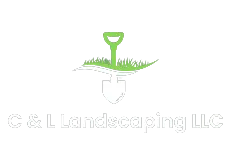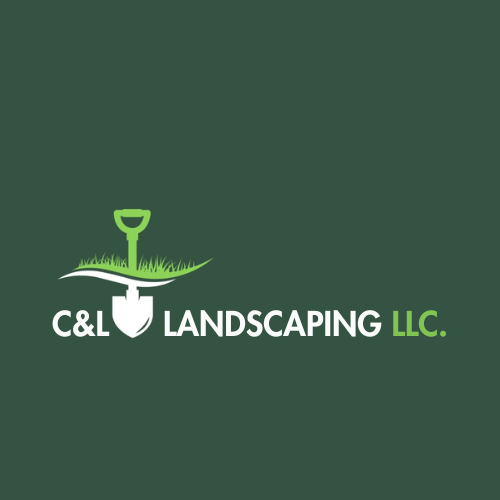TREE & SHRUB CARE
LEARN MORE
Revitalize Your Trees and Shrubs with C&L Landscaping LLC's Expert Tree & Shrub Care
Is Your Landscape Flourishing or Fading? Rejuvenate with Our Tree & Shrub Care Services!
Experience the joy of healthy, vibrant trees and shrubs in your yard. Combat insects and diseases, and infuse a wealth of nutrients with our specialized Tree & Shrub Care program.
Don't Let Bugs and Disease Threaten Your Beautiful Trees and Shrubs!
Healthy, blossoming trees and shrubs enhance the overall beauty of your yard. Insects and diseases can turn them dull and tired, even leading to irreversible damage. Act now to protect your investment!
C&L Landscaping LLC's Tree & Shrub Care Program:
Applications Every 4-7 Weeks: All-inclusive treatments to protect and nourish your trees and shrubs throughout the year.
Tailored Applications:
Horticultural Oil Treatment (2 applications per year): Applied in early spring and late fall, this treatment controls insect eggs and larvae, reducing insect damage.Disease & Insect Treatments (5 applications per year): Targeting each season's most active insects and fungi, including black sooty mold, to treat existing problems and prevent future issues.Deep Root Fertilization (Fall Application): Slow-release liquid fertilizer injected directly into the root system for healthier and more robust growth.
Convenient Pay-As-You-Go System:
No Upfront Cost: Easy payment with no down payment required until after each completed service.
Ongoing Treatments:
Safety & Protection: Strict adherence to safety procedures, ensuring the well-being of customers and staff in line with EPA guidelines.
Satisfaction Guaranteed:
100% Satisfaction: Our commitment is to keep you satisfied by exceeding your expectations.
Protect Your Trees and Shrubs - Get Started Today! Sign Up Now!
What Are Our Customers Saying ?
check out our feedback below.
FAQS
How often should I water my lawn, and what's the best time to do it?
The frequency and timing of lawn watering depend on several factors, including your local climate, soil type, and grass variety. As a general guideline, it's best to water deeply but infrequently. Most lawns benefit from around 1 to 1.5 inches of water per week, including rainfall. To promote strong root growth, it's usually better to water in the early morning, ideally between 6 AM and 10 AM. This allows the grass to dry before evening, reducing the risk of diseases.
How can I improve the health of my lawn's soil?
Soil health is crucial for a thriving lawn. To enhance your soil, consider regular aeration, which improves air and water penetration. Additionally, you can incorporate organic matter, such as compost, to improve soil structure and nutrient content. Conduct a soil test to identify any deficiencies and adjust your fertilization accordingly. Finally, mow your grass at the recommended height for your specific grass type, as this helps maintain soil moisture and grass health.
What can I do to prevent weeds without using harmful chemicals?
Preventing weeds naturally is a sustainable and eco-friendly approach. To do this, maintain a healthy lawn through proper watering, fertilization, and mowing. A thick, dense grass cover makes it difficult for weeds to establish themselves. Additionally, consider using organic mulch in your garden beds to smother weed growth. Hand-pull weeds when they appear, and ensure you remove the entire root system. Regularly overseeding your lawn with grass seed can also help fill in bare spots and compete with weeds naturally. If necessary, use organic weed control methods like vinegar-based herbicides for spot treatments.
When is the best time to get my mulch beds redone?
The best time to get your mulch beds redone is in the Late Fall or early Spring. This will allow your mulch beds to stay fresh during the Summer and maintain proper soil health for plants nearby.
When is the best time to get sod installed?
The best time to get sod installed depends on the type of grass that you have. Most likely, late Fall to early Spring is when most people seek to get theirs installed due to the temperature change from Spring to Summer promoting a healthy growing phase.
When should I consider fixing my sprinkler/irrigation system?
Visible Leaks: If you notice water pooling in areas where it shouldn't or soggy spots on your lawn, it's likely there's a leak in your system.
Uneven Watering: Areas that are consistently dry or overly saturated despite the same watering schedule may indicate issues with your sprinkler heads or distribution.
Increased Water Bill: A sudden spike in your water bill could be a sign of inefficient water usage due to leaks or malfunctioning components in your irrigation system.
System Age: If your sprinkler system is over 10-15 years old, it may be prone to more frequent breakdowns and inefficiencies, requiring repairs or upgrades.
Poor Coverage: Sections of your lawn or garden receiving inadequate water or not being watered at all suggest that your system needs adjustment or repair.
Common Signs of Sprinkler/Irrigation Issues:
Reduced Water Pressure: If some sprinkler heads are spraying weaker than usual, it could indicate clogs, blockages, or issues with the water supply.
Stuck or Broken Sprinkler Heads: Heads that don’t pop up or are damaged can lead to uneven watering and should be repaired or replaced promptly.
Controller Malfunctions: Problems with the controller such as incorrect scheduling, failure to turn on/off, or erratic behavior can affect the system’s efficiency.
Strange Noises: Grinding or whining sounds when the system operates could indicate issues with valves or the water pressure.
Plant Stress: Wilting plants or dry patches in your lawn despite regular watering may signal that your irrigation system isn't performing optimally.
When is the best time to aerate?
The best time to aerate depending on grass type is mid-to-late Fall. During this time period, most of the grass in the South is in prime growing season.
When is the best time to over-seed?
The best time to over-seed depending on grass type is mid-to-late Fall. During this time period, most of the grass in the South is in prime growing season.
How often should I have my grass cut?
How often you choose to have your grass cut depends solely on the type of grass that you have and the season you are in. In most cases, it is recommended that you get your grass cut weekly or bi-weekly depending on the season.

